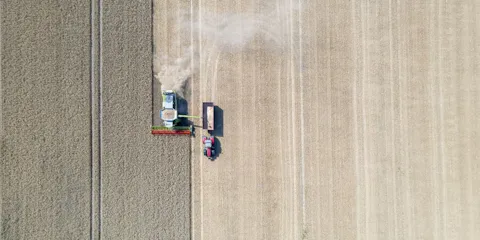FSSC 22000: Food Safety System Certification
Improve your capability to consistently meet customer expectations for products safety and quality while reducing costs of supply chain management.
FSSC 22000: Food Safety System Certification
Certification of your food safety management system to FSSC 22000 demonstrates your commitment to food safety, quality, legality and on continual improvement.
What is FSSC 22000?
FSSC 22000 is a food safety certification scheme based on the existing internationally recognised standard ISO 22000 and complemented by technical standards, such as ISO TS 22002-1 for food manufacturing and ISO TS 22002-4 for packaging manufacturing. It is also fully consistent with other standards, such as ISO 9001 and ISO 14001 (including the alignment with ISO High Level Structure).
It specifically targets the food, feed and packaging manufacturing sector as well as the storage and distribution, catering and retail/wholesale sectors. While the first editions of FSSC 22000 only applied to food manufacturers, the scope for current version has been extended to other segments of the supply chain, and it’s recognized by Global Food Safety Initiative – GFSI.
When already certified against ISO 22000, an organization only needs an additional review against technical specifications for sector PRPs, and the FSSC additional requirements to meet all scheme requirements.
The requirements are related to the food safety management system and the HACCP system (Hazard Analysis & Critical Control Points). Furthermore, a voluntary additional Quality Module is available, based on ISO 9001 and, if a company is manufacturing both food and non-food packaging material, the additional module HPC420 if available for the non-food packaging material.
Benefits of becoming certified
FSSC 22000 provides a certification scheme that ensures a robust food safety management system to control food safety hazards, minimise risks, and ensure safe food production. Reliability in delivering safe food contributes to consumer trust and, eventually, consumer loyalty. The standard enables your organisation to:
- Provide evidence of commitment to identify, evaluate, and control the food safety hazards that may be expected to occur in order to avoid harming the consumer directly or indirectly
- Build and operate a management system capable of helping you to better meet food quality/safety requirements and legal compliance
- Provide a tool for food safety performance improvement, and the means to monitor and measure food safety performance effectively
- Develop a good food safety culture which in turn improves customer confidence and aids in acquiring competitive advantages
Getting started
To be certified, you first need to implement a food safety management system complying with the standard’s requirements. DNV is an independent third-party certification body accredited for the FSSC 22000 standard DNV is an accredited third-party certification body and can help you throughout the journey starting from relevant training to self-assessments, gap analysis and certification services.
Learn more about how to get started on the road to certification.
More information

FSSC 22000
Download our flyer.

Transition to FSSC 22000 Version 6
Start preparing for FSSC 22000 version 6 transition

Training
Relevant insight in an active learning environment.

Your added value
Find out more on the digital customer experience.
ViewPoint Surveys
See the findings of our ViewPoint customer panel surveys
Have you signed up for our newsletter?
Subscribe to our newsletter for the latest updates
